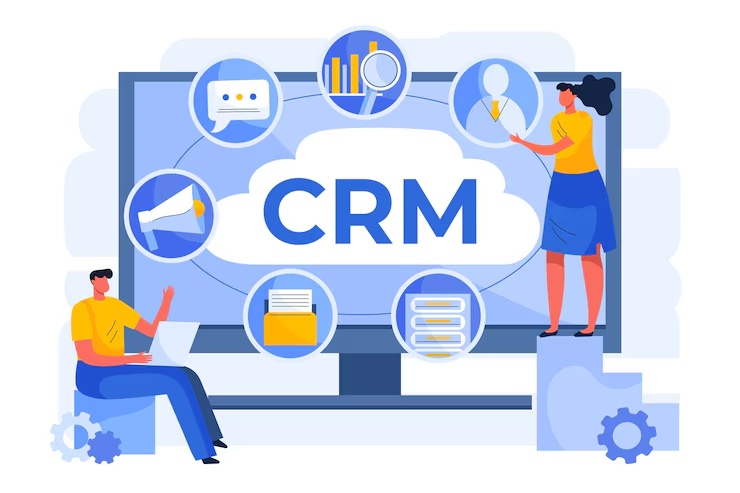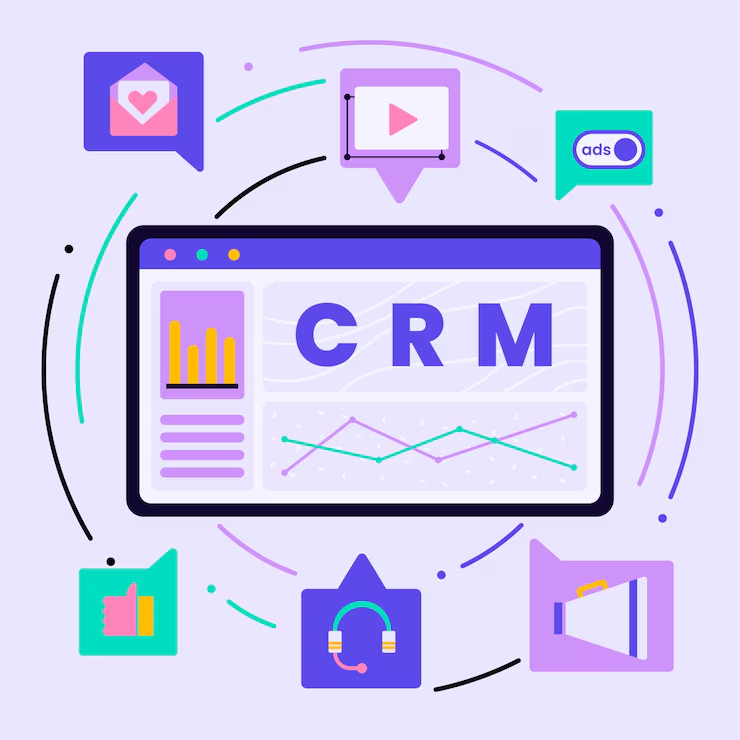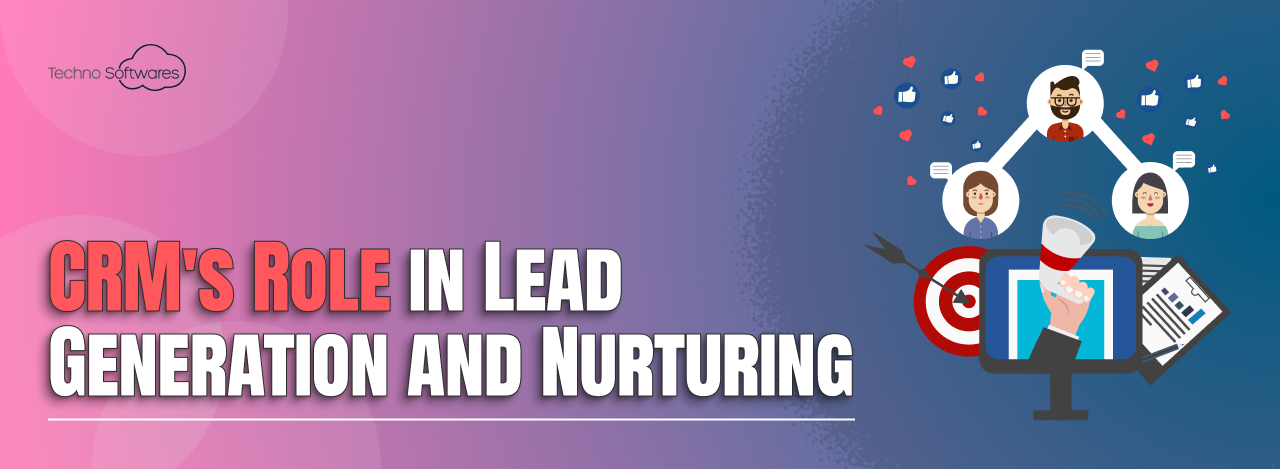The Role of CRM in Lead Generation and Nurturing
In today’s fast-paced business environment, the significance of Customer Relationship Management (CRM) systems in lead generation cannot be overstated. As we navigate through a landscape filled with potential customers, having a robust CRM system allows us to streamline our processes and enhance our interactions with prospects. By centralizing customer data, we can gain valuable insights into their behaviors, preferences, and needs.
This information is crucial for tailoring our marketing strategies and ensuring that we reach out to leads at the right time with the right message. Moreover, CRM systems empower us to track our interactions with leads throughout their journey. From the initial point of contact to the final conversion, we can monitor every touchpoint and engagement.
This level of visibility not only helps us understand which strategies are working but also allows us to identify areas for improvement. By leveraging CRM tools, we can create a more personalized experience for our leads, ultimately increasing the likelihood of conversion and fostering long-term relationships.
Key Takeaways
- CRM is crucial for lead generation as it helps in identifying and targeting potential customers.
- CRM aids in nurturing leads by providing valuable insights and personalized communication to move them through the sales funnel.
- Integrating CRM ensures effective lead management by centralizing customer data and streamlining communication.
- Techno Softwares play a vital role in CRM integration by providing customized solutions to meet specific business needs.
- Using CRM for lead generation and nurturing results in improved customer relationships, higher conversion rates, and better ROI.
How CRM Helps in Nurturing Leads for Conversions
Introduction to Lead Nurturing
Once we have generated leads, the next critical step is nurturing them effectively to drive conversions. CRM systems play a pivotal role in this process by enabling us to segment our leads based on various criteria such as demographics, behavior, and engagement levels. This segmentation allows us to tailor our communication strategies, ensuring that we deliver relevant content that resonates with each lead’s unique needs and interests.
Segmentation and Personalization
By segmenting our leads, we can create targeted campaigns that cater to their specific requirements, increasing the likelihood of conversion. This personalized approach helps build trust and establishes our brand as a trusted authority in the industry. Furthermore, it enables us to track the effectiveness of our campaigns and make data-driven decisions to optimize our strategies.
Automating Follow-ups and Workflows
Additionally, CRM systems facilitate automated follow-ups and reminders, ensuring that no lead falls through the cracks. By setting up workflows and triggers, we can send timely emails or notifications to leads based on their interactions with our brand. For instance, if a lead downloads a whitepaper or attends a webinar, we can automatically follow up with additional resources or offers that align with their interests.
Driving Conversions through Proactive Engagement
This proactive approach not only keeps our brand top-of-mind but also demonstrates our commitment to providing value, which can significantly enhance the chances of conversion. By nurturing our leads effectively, we can build strong relationships, establish trust, and ultimately drive conversions that contribute to the growth and success of our business.
Integrating CRM for Effective Lead Management

Integrating CRM into our lead management processes is essential for maximizing efficiency and effectiveness. A well-integrated CRM system allows us to consolidate all lead-related information in one place, making it easier for our teams to collaborate and share insights. This centralized approach ensures that everyone involved in the lead management process has access to the same data, reducing the risk of miscommunication and enhancing overall productivity.
Furthermore, integrating CRM with other marketing tools and platforms can amplify our lead generation efforts. For instance, connecting our CRM with email marketing software enables us to track the performance of our campaigns in real-time. We can analyze open rates, click-through rates, and conversion metrics directly within the CRM, allowing us to make data-driven decisions and optimize our strategies on the fly.
This level of integration not only streamlines our workflows but also enhances our ability to respond quickly to changing market conditions.
The Role of Techno Softwares in CRM Integration
As we delve deeper into the world of CRM integration, it becomes evident that techno software solutions play a crucial role in enhancing the functionality of these systems. These software tools provide us with the necessary capabilities to customize and extend our CRM systems according to our specific business needs. Whether it’s integrating third-party applications or developing custom features, techno software solutions enable us to create a tailored CRM environment that aligns with our lead generation goals.
Moreover, these software solutions often come equipped with advanced analytics and reporting features that allow us to gain deeper insights into our lead management processes. By harnessing the power of data analytics, we can identify trends, measure performance, and make informed decisions that drive better outcomes. The ability to visualize data through dashboards and reports empowers us to track key performance indicators (KPIs) effectively and adjust our strategies accordingly.
Benefits of Using CRM for Lead Generation and Nurturing
The benefits of utilizing CRM systems for lead generation and nurturing are manifold. First and foremost, CRM systems enhance our ability to manage relationships with potential customers effectively. By maintaining detailed records of interactions and preferences, we can build stronger connections with leads, fostering trust and loyalty over time.
This relationship-building aspect is crucial in today’s competitive landscape, where customers are more likely to choose brands that understand their needs. Additionally, CRM systems improve our overall efficiency by automating repetitive tasks and streamlining workflows. This automation allows us to focus on high-value activities such as strategizing and engaging with leads rather than getting bogged down by administrative tasks.
As a result, we can allocate more time and resources toward nurturing leads and converting them into loyal customers. Ultimately, this increased efficiency translates into higher conversion rates and improved return on investment (ROI) for our marketing efforts.
Best Practices for Utilizing CRM for Lead Management

Data Management Best Practices
Maintaining accurate data is crucial for effective lead management. This involves regularly reviewing and updating our database to ensure that all information is current and correct. By doing so, we can prevent issues related to outdated or incorrect data and make informed decisions about our lead management strategies.
Automation and Workflow Optimization
Another best practice involves leveraging automation features within the CRM to enhance our lead management processes. By setting up automated workflows for follow-ups, reminders, and lead scoring, we can ensure that we are consistently engaging with leads at the right moments. This helps to streamline our lead management processes and improve overall efficiency.
Training and Support for CRM Users
Training our team members on how to use the CRM effectively is crucial for maximizing its potential. Providing ongoing education and support ensures that everyone is equipped with the knowledge needed to leverage the system fully. This includes training on how to use automation features, manage data, and analyze lead management metrics to inform our strategies. By investing in the training and support of our team members, we can ensure that our CRM system is used to its full potential and that we are achieving our lead management goals.
Case Studies: Successful Implementation of CRM for Lead Generation
Examining case studies of successful CRM implementation can provide valuable insights into best practices and strategies that yield positive results. For instance, a leading e-commerce company implemented a CRM system that integrated seamlessly with their marketing automation tools. By doing so, they were able to track customer interactions across multiple channels and tailor their marketing campaigns accordingly.
As a result, they experienced a significant increase in lead conversions and customer retention rates. Another compelling case study involves a B2B service provider that utilized a CRM system to streamline its lead nurturing process. By segmenting leads based on their industry and engagement levels, they were able to deliver targeted content that resonated with each group.
This personalized approach led to higher engagement rates and ultimately resulted in a substantial increase in sales conversions over a short period.
Future Trends in CRM Integration for Lead Generation and Nurturing
As we look ahead, several trends are emerging in the realm of CRM integration that will shape the future of lead generation and nurturing. One notable trend is the increasing use of artificial intelligence (AI) within CRM systems. AI-powered tools can analyze vast amounts of data to identify patterns and predict customer behavior, enabling us to make more informed decisions about how to engage with leads effectively.
Additionally, the rise of omnichannel marketing is prompting businesses to seek more integrated CRM solutions that can manage interactions across various platforms seamlessly. As customers engage with brands through multiple touchpoints—such as social media, email, and websites—having a unified view of these interactions will be essential for delivering personalized experiences. In conclusion, as we continue to explore the potential of CRM systems in lead generation and nurturing, it becomes clear that these tools are indispensable for modern businesses.
By understanding their importance, integrating them effectively into our processes, and staying abreast of emerging trends, we can position ourselves for success in an increasingly competitive marketplace.
If you are interested in learning more about enterprise application integration, check out this informative article on Techno Softwares’ blog. This article discusses the importance of integrating various applications within an organization to streamline processes and improve efficiency. By implementing CRM software, like the one discussed in The Role of CRM in Lead Generation and Nurturing, businesses can enhance their lead generation and nurturing efforts. Additionally, for those looking to expand their business into the fintech industry, the article on best fintech apps in 2024 provides valuable insights and tips on how to build a successful fintech application. And for e-commerce businesses looking to add subscription services to their WooCommerce store, the article on subscription services in WooCommerce offers step-by-step guidance on how to implement this feature effectively.
FAQs
What is CRM?
CRM stands for Customer Relationship Management. It is a technology for managing a company’s relationships and interactions with potential and current customers.
What is lead generation?
Lead generation is the process of identifying and cultivating potential customers for a business’s products or services.
What is lead nurturing?
Lead nurturing is the process of building relationships with potential customers at every stage of the sales funnel and throughout the buyer’s journey.
How does CRM help in lead generation?
CRM helps in lead generation by organizing and managing customer data, tracking interactions, and identifying potential leads for the sales team to follow up with.
How does CRM help in lead nurturing?
CRM helps in lead nurturing by providing insights into customer behavior, preferences, and interactions, allowing businesses to personalize their communication and engage with leads in a more targeted and effective manner.
How can Techno Softwares integrate CRM for lead generation and nurturing?
Techno Softwares can integrate CRM systems with a business’s existing processes and tools, providing a seamless and efficient way to manage leads and customer relationships. They can also customize CRM solutions to meet specific business needs and goals.





